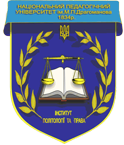Стипендії для участі у дослідницькій програмі Університету Тарту (Естонія)
The University of Tartu (Estonia) announces a call for applications for doctoral candidates and PhD-holding academics in the Social Sciences for a five-month fellowship at the Johan Skytte Institute of Political Studies, supported by the Eurasia Program of the Open Society Foundations.
The purpose of the fellowship program is to enable scholars from the target countries to develop analytical and research skills and build international networks by participating in a five-month resident fellowship program at the Johan Skytte Institute of Political Studies at the University of Tartu.
Deadline: 20 November 2016
Open to: citizens of Armenia, Azerbaijan, Belarus, Georgia, Kazakhstan, Kyrgyzstan, Moldova, Tajikistan, Turkmenistan, Ukraine and Uzbekistan
Venue: 1 February – 30 June 2017 at the University of Tartu (Estonia)
Description
The University of Tartu (Estonia) announces a call for applications for doctoral candidates and PhD-holding academics in the Social Sciences for a five-month fellowship at the Johan Skytte Institute of Political Studies, supported by the Eurasia Program of the Open Society Foundations.
The purpose of the fellowship program is to enable scholars from the target countries to develop analytical and research skills and build international networks by participating in a five-month resident fellowship program at the Johan Skytte Institute of Political Studies at the University of Tartu.
The fellowship program focuses on political and societal transition in Eurasia and Eastern Europe in a comparative perspective. Post-communist transformation processes in the region have produced a variety of political outcomes, ranging from dictatorships to hybrid regimes to consolidated democracies. The record on governance and quality of public institutions is equally mixed: while some countries are plagued by endemic corruption and inefficient governance, others have succeeded in building accountable, open and innovative public institutions. The region remains dynamic, as authoritarian regimes face public demands for democratic change, greater accountability and better performance – and sometimes react by further constraining dissent. In countries that have succeeded in building well-functioning democratic institutions, backsliding remains a possibility, as democratic institutions face economic pressures and are challenged by populists promising simple solutions to complex problems.
Eligibility
- Applicants must be a citizen of one of the Eurasia Program target countries (Armenia, Azerbaijan, Belarus, Georgia, Kazakhstan, Kyrgyzstan, Moldova, Tajikistan, Turkmenistan, Ukraine or Uzbekistan) and be permanently residing in one of these countries;
- Applicants for the doctoral fellowship must be doctoral students enrolled in a PhD program* in the Social Sciences (broadly defined) at an institution of higher education in one of the program countries (for at least one year at the time of applying);
- Applicants for the postdoctoral fellowship must be young scholars who have been awarded a PhD (or candidate degree)* in the Social Sciences (broadly defined) during a period of six years preceding the application deadline;
- Applicants should have a very good command of English (be able to follow lectures and write academic or policy papers in English);
- Preference will be given to candidates who have not studied or worked in the EU or North America for extended periods of time.
Fellowships
The fellows are supported by a grant from the OSF Eurasia program, administered by the University of Tartu. The grant covers travel, visa, accommodation, health insurance and living costs during the fellowship period. Specifically, the PhD candidate will receive a monthly scholarship of 1200 euros, while the Post-Doctoral Fellow will receive a net salary of 1500 euros per month.
The fellows are expected to cover accommodation and living costs from the monthly income specified above. The host institution will provide assistance in arranging suitable accommodation (options include single room in a modern dormitory or hostel, or a small guest apartment).
Additionally, expenses for one-time roundtrip travel to Tartu will be covered along with relevant visa and insurance fees. Air tickets will be arranged and covered directly by the University of Tartu. Visa and insurance fees must initially be incurred by the Fellow but will be reimbursed upon the Fellow’s arrival to Tartu.
The program does not provide any support to the fellows’ family members. The fellow is expected to be present in Tartu for the entire duration of the fellowship, with the exception of professional travel (e.g. conference attendance, visits to partner institutions) approved by the host institution.
Application
The deadline for applications is November 20, 2016. Application documents should be sent electronically to Ця електронна адреса захищена від спам-ботів. вам потрібно увімкнути JavaScript, щоб побачити її. by 23:59 Estonian time (GMT/UTC+02:00) on November 20, 2016. All documents should be English. Academic transcripts may be in a language other than English but should be accompanied by a translation provided (and signed) by the applicant.
Applicants for the Doctoral fellowship must submit the following documents:
- completed application form, available here;
- description of the research project to be undertaken during the fellowship period (max 4 pages), detailing the objectives and relevance of the project, main research questions, theoretical and empirical approaches and data used. Please indicate what the concrete research output will be (academic article, chapter of a dissertation or a book; policy paper, etc.). Feel free to indicate what kind of assistance and advice you need with this project;
- CV detailing education, professional experience, and any publications;
- official letter from home university proving enrollment in a PhD program, together with an academic transcript (if applicable) detailing coursework completed;
- copy of the identification pages of the applicant’s passport.
Applicants for the Post-doctoral fellowship must submit the following documents:
- completed application form, available here;
- description of the research project to be undertaken during the fellowship period (max 4 pages), detailing the objectives and relevance of the project, main research 5 questions, theoretical and empirical approaches and data used. Please indicate what the concrete research output will be (academic article, chapter of a dissertation or a book; policy paper, etc.). Feel free to indicate what kind of assistance and advice you need with this project;
- CV detailing education, professional experience, and any publications;
- copy of PhD (or candidate degree) diploma and academic transcript (if applicable) detailing coursework completed;
- copy of the identification pages of the applicant’s passport.
Please address any questions about the program or the application process to Ця електронна адреса захищена від спам-ботів. вам потрібно увімкнути JavaScript, щоб побачити її.
Deadline: 20 November 2016
More information: http://bit.ly/2fflDfc









